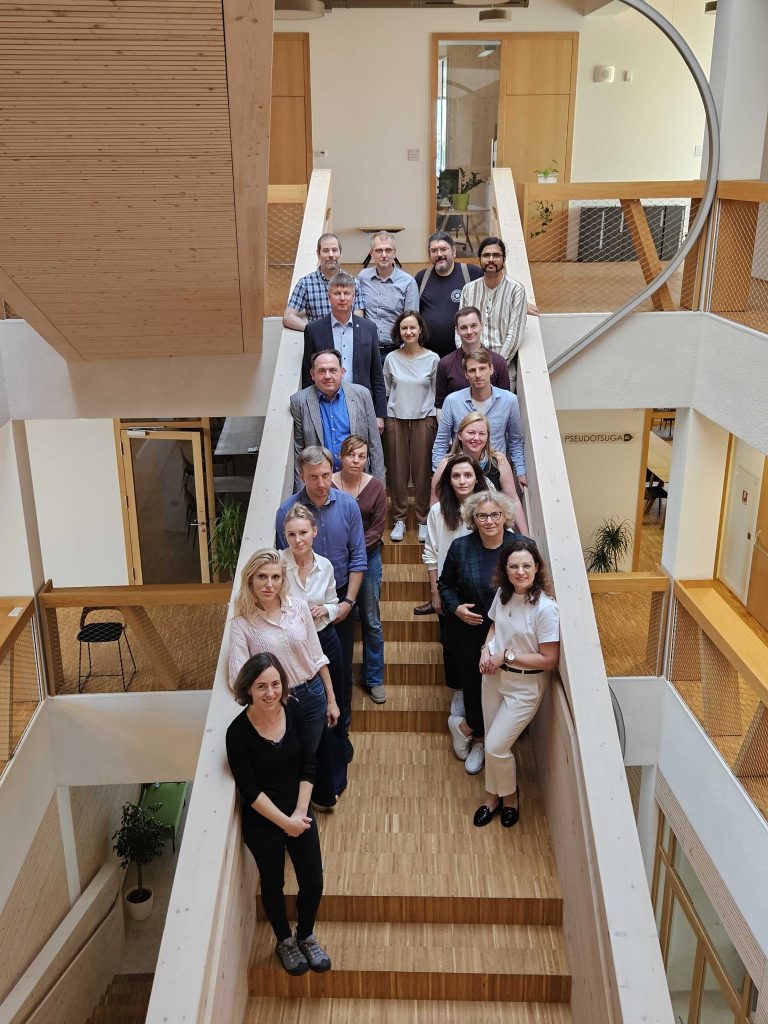
October 22, 2024


Alberto Quintana Gallardo, visiting researcher at InnoRenew CoE
I have lived all my life in Valencia, Spain. I have spent time in other parts of the world, but not for more than three months. I am currently living in Izola as a part of my postdoctoral project. I’ll be here for a year and then I’ll go back to Valencia.
I have kind of a mixed background. I did my bachelor’s in Technical Architecture, a degree in the boundaries of engineering and architecture. I chose it because I wanted to do something that combined both humanities and engineering. After that, I did a Master’s in Acoustic Engineering. As a musician, I wanted to learn more about the relationship between sound and architecture. In the case of my Ph.D., circumstances led me to write a thesis on sustainable architecture and Life Cycle Assessment.
In general, I try to do my bit for a more sustainable world, especially when it comes to buildings and cities. I evaluate how buildings and building products affect the environment and the society around them. My other area of expertise is architectural acoustics. I collaborate in the design of theatres and other performance spaces.
I try to start early, but I always fail, so I end up starting at 9:30 am or so. Most of my work is done using a computer. What I actually do varies a lot; I might analyse results from some acoustic testing, work on the LCA of a product or write text for a paper or a report… I also have meetings, tonnes of them. I usually finish around 17 am.
Being able to learn something new every day. Not many jobs outside of academia allow you to be constantly learning. It can be challenging at times but rewarding in the long run.
Finding the right balance between work and my free time. This kind of profession can be pretty absorbing.
I am fascinated by the progress many scientists are making in understanding non-human intelligence, especially the work focusing on fungi and the mycelium networks. If we learn to understand nature, we’ll be able to treat it better.
My favourite book is “Fictions” by the Argentinian writer Jorge Luis Borges. This book helped me go through some difficult times, especially during the lockdown. Every time I read it, I feel as if he was speaking to me.
I have just finished reading the book “Panza de Burro” by Andrea Abreu. She tells a beautiful story about growing up in the Canary Islands. I have also been watching “One Piece”, a very famous Japanese anime. I did not watch it as a child, but I am really enjoying it as an adult.
When I first arrived to Slovenia three years ago, I was surprised by how beautiful the coast of Slovenia is. I felt as if I was in a Hayao Miyazaki movie.
I love how friendly and polite people are here. I miss eating paella on Sunday with my family.
My favourite place is the area around the port of Izola. It has arguably the most beautiful sunsets I have ever seen.
Having a good conversation, if possible, with a beer.
Learning makes me happy. I try to organize my life in a way in which I get to learn every day.
Wood, for me, is the key to a more sustainable future. The key to mitigating climate change and providing high-quality and sustainable homes for everybody.